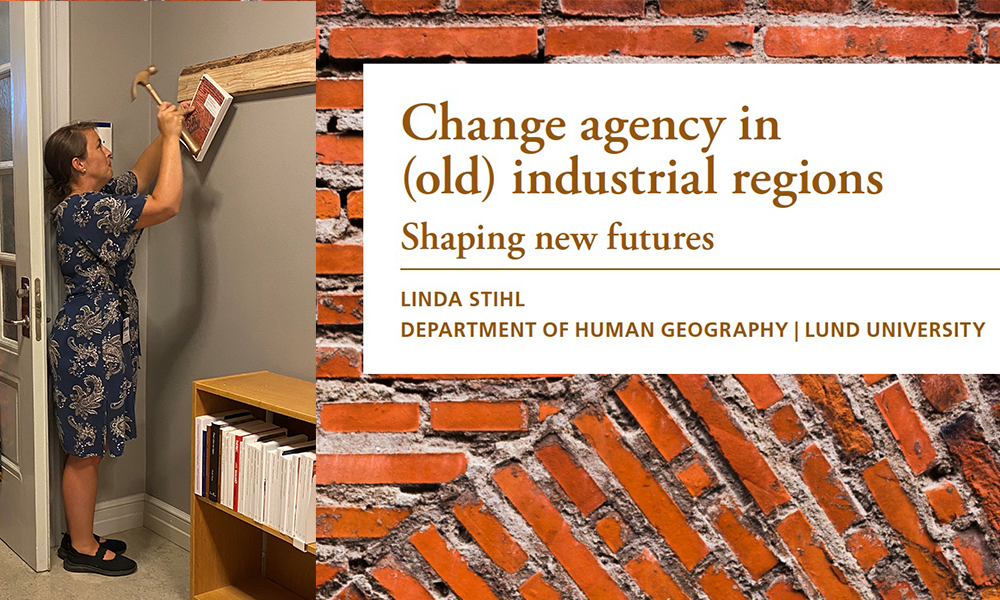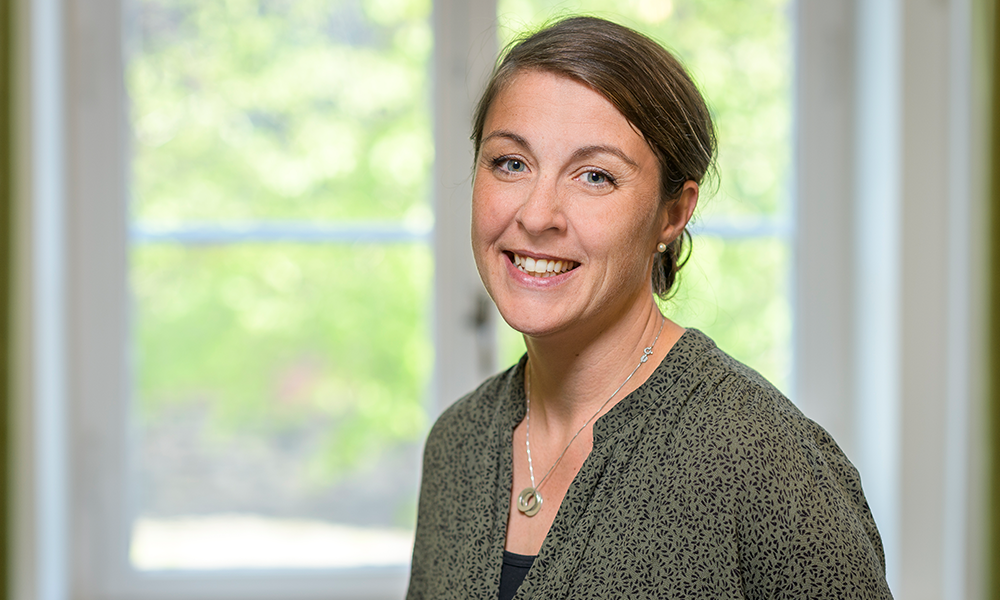New dissertation: how the power of change can lift areas in decline
Curiosity and the wish for change at a professional level led Linda Stihl to PhD-studies and a possibility to delve deeper into one of her fields of interest – inequality in societal development.
Pernilla Daws – Published 21 September 2023

Diverse interests led to a PhD-position after several years of teaching at the Department of Human Geography, and it is now time for Linda Stihl to defend her dissertation “Change agency in (old) industrial regions – shaping new futures”. What started off as an interest in Geography steered towards urban and regional planning as well as to societal transformation as time passed.
– An opportunity arose in a project aiming at understanding how European regions can enter upon new development paths or renewal after decline or crisis, says Linda Stihl.
She has through her PhD-studies delved into the intricate dynamics of agency – people’s choices, actions, and lack of actions – within old industrial regions in Sweden. The studied regions are characterized by a history of decline and crisis but also of transformation efforts and renewal.
– More specifically, my research is about who, how, why, and when local actors engage in transforming regional development.
The research showed examples of change and transformation, but also that it isn’t always clear to an actor that they have the power to influence the course of their regional development. On the contrary according to Linda Stihl:
– During long time periods, people didn’t perceive themselves as having the ability to make a change and, hence, could not work transformative. To be able to use one’s power of change, one must first acknowledge that power.
The front line of regional development is in many ways at the municipal level, but it is the regional political bodies that are responsible for the actual policy work in Sweden as well as in other EU countries.
– I hope that my research shows the discrepancies in responsibilities for regional development in Sweden and possibly influences the future direction of policy.
When her PhD-studies are over, Linda Stihl will expand her teaching role to include economic geography as well as cartography and geographic information system (GIS), but she will also continue in her role as a researcher:
– Uneven regional development is a continuous issue, and there are many interesting angles and areas left to explore.

Find out more about Linda Stihl and her work
In the Lund University research portal you find her:
On the Acore project webpage you find:
